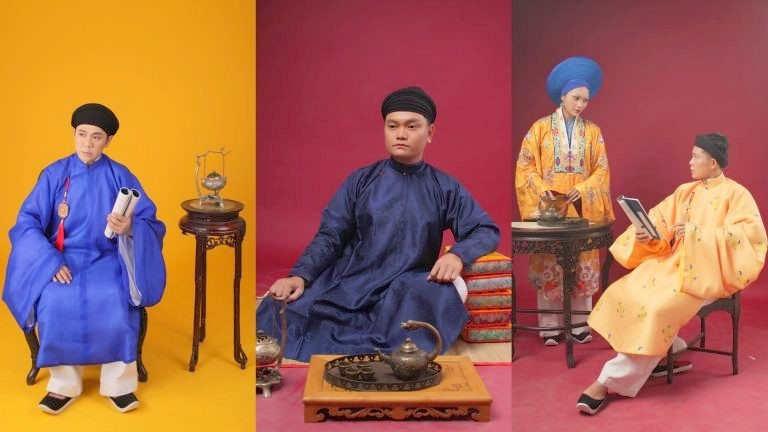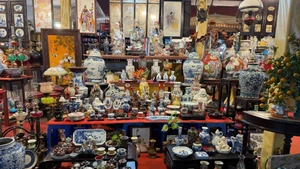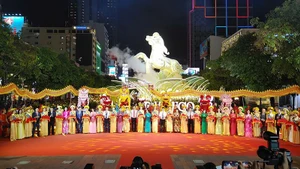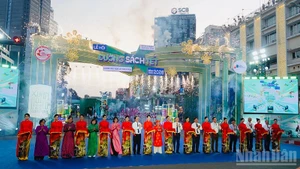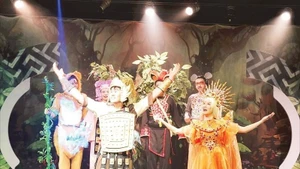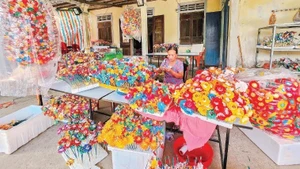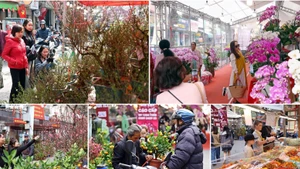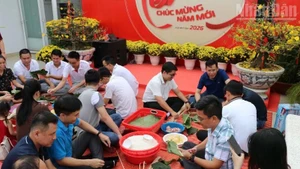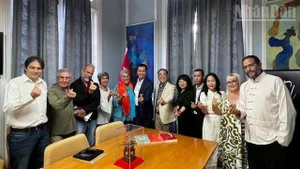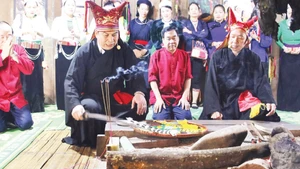In early 2017, 1991-born painter Cu Minh Khoi and his friends made the debut for the Hoa Van Dai Viet project, which digitises 250 ancient Vietnamese decorative patterns in order to apply them to a wide a variety of products from key chains and calendars to T-shirts and lucky money packets.
The patterns, spanning nine centuries from the Ly Dynasty to the Nguyen Dynasty, are now publicly available on the web for the community to use completely free of charge.
Meanwhile, Y Van Hien company was born to provide its customers with the tailoring service of ancient Vietnamese costumes, such as ao ngu than (five-flap tunic) and ao giao linh (cross-collared robe) as well as shoes, wooden clogs, fans and folding pillows. These products are not only for sale but are also used to revive traditional rites, contributing to preserving and upholding the quintessence of Vietnamese culture.
With in-depth research on materials, decorative patterns and styles, the team sources material from famous age-old craft villages, including Van Phuc, La Khe, Ma Chau, Lanh My A and Vac.
Since its establishment one year ago, the company has attracted more customers than its initial target, many of them coming to Y Van Hien to tailor ‘ngu than’ (five-flap) tunics, which can make them stand out at diplomatic functions and festivals.

Hoa Van Dai Viet’s products featuring ancient Vietnamese decorative patterns
In a time when everyone is preoccupied with the race to get rich, young members of Y Van Hien and Hoa Van Dai Viet have nurtured a passion for traditional arts and culture and have overcome certain obstacles in turning passion into a business.
Director of Y Van Hien, Nguyen Duc Loc - a young man from the 9x generation, quit his job as a cameraman to go into his business at the company. There are considerable risks for the staff while working in a field in which it is not easy to find a market for its products. Therefore, they have received a handful of suggestions dissuading from the tough path they are on.
Thanks to their hard work, both projects have come to fruition, paving the way to bring traditional fine arts into contemporary life while promoting treasured Vietnamese culture.
However, these young social entrepreneurs have not yet received any support or preferential treatment. Director of Y Van Hien, Nguyen Duc Loc, expressed his hope for preferential policies from the State to support businesses operating in cultural preservation, which can encourage further participation from the community in promoting and safeguarding traditional culture. He suggested incentives on tax support and funding for projects on preserving heritages.
